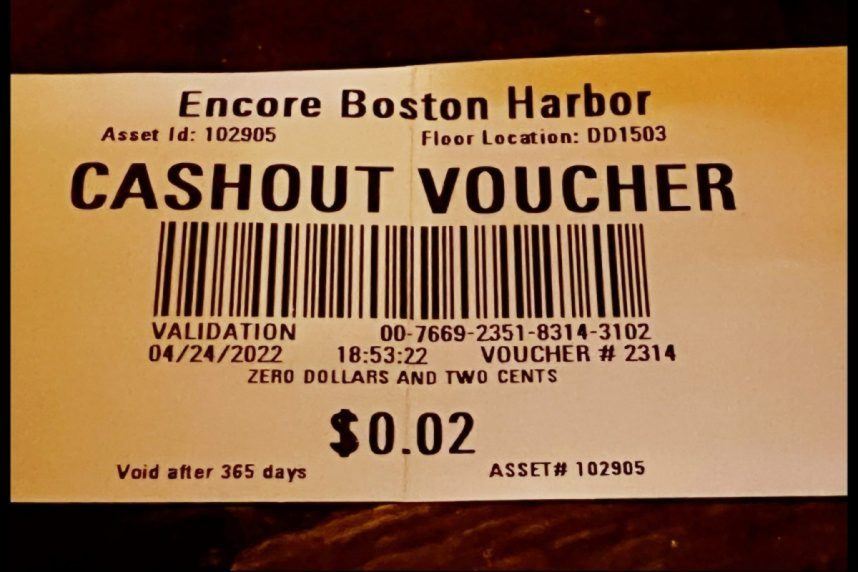Posted on: September 24, 2024, 04:54h.
Last updated on: September 24, 2024, 04:54h.
Wynn Resorts’ legal team in Massachusetts has prevailed in a lawsuit that has run over a half-decade.

In a ruling handed down on Monday, The United States First Circuit Court of Appeals said Wynn’s casino in Everett near Boston did not violate state gaming laws or engage in deceptive business practices. Writing the unanimous opinion on behalf of the three-judge appellate panel, Circuit Judge Lara Montecalvo said plaintiff A. Richard Schuster’s allegations against Wynn, operating in Massachusetts as Wynn MA, LLC, were unfounded.
The well-reasoned decision of the First Circuit affirming the dismissal of the case reflects the same conclusion that every other court that has heard any part of this case has reached,” Wayne Dennison, an attorney at Brown Rudnick who was the lead counsel for Wynn Resorts with his colleague Josh Dunn, told Casino.org. “The gaming practices challenged by the purported class plaintiff were entirely lawful.”
Schuster claimed that Encore Boston Harbor’s practice of not fully paying out slot machine vouchers violated Massachusetts’ consumer protection statutes. When a gambler is finished playing a slot machine, they are printed a ticket, referred to in the industry as “ticket in, ticket out,” or “TITOs,” that patrons can redeem at the casino cage or a self-service cashier kiosk.
The kiosks, called TRUs, an industry acronym for ticket redemption units, however, do not dispense coins and round the ticket amount down. So, a voucher worth $43.57 only dispenses $43 in cash. A subsequent ticket is printed in the change amount that can be redeemed at the casino’s cage.
Many casinos went coinless during the COVID-19 pandemic because of a coin shortage. Schuster argued the ticket redemption practice violated Encore’s internal controls and gaming regulations dictated by the Massachusetts Gaming Commission.
Federal courts disagreed.
Schuster Loses Again
Schuster’s initial complaint in 2019 against Encore Boston Harbor had to deal with whether the casino could run 6:5 blackjack games instead of 3:2, the latter of which was most common in Las Vegas until about a decade ago. In 6:5, the house edge is as much as 2% for even the most skilled players as compared to just 0.5%.
Schuster alleged in the proposed class-action litigation that Wynn wasn’t properly displaying signs informing players that the majority of the Encore casino’s blackjack tables had 6:5 odds.
In 6:5, a gambler is paid $6 for every $5 bet. In 3:2, a winning blackjack hand receives $3 for every $2 wagered. It might seem trivial, but the trend of casinos, specifically luxury properties like Encore Boston, implementing 6:5 tables over 3:2 makes a considerable difference when minimums are $50 a hand or more.
The MGC’s Investigations and Enforcement Bureau launched an investigation soon after Schuster’s initial claim and found that the Wynn casino, built for $2.4 billion and opened in June 2019, was in regulatory compliance. Schuster carried on his case through state appeals leading to the Massachusetts Supreme Court siding with Wynn.
Schuster then filed a subsequent complaint challenging the casino’s slot redemption process. Wynn successfully petitioned to move the case to federal court where the U.S. Massachusetts District Court granted the casino’s motion for summary judgment in February 2023.
Schuster appealed the following month. The case dragged on as Schuster attempted to remand the case to state court to no avail. The federal appellate court heard the case in January and issued its judgment on Monday.
Odds Favor Case Being Closed
The U.S. appeals court said Encore’s TRU practices are common in the gaming industry and are not in violation of federal or state laws in Massachusetts. Calling Schuster’s allegations “fatally flawed,” the judges ruled that Wynn’s business practices did not prevent the plaintiff from redeeming the change voucher at the cage or inserting the ticket to keep playing.
The judges ultimately ruled that Massachusetts’ gaming laws do not limit the definition of “funds” to bills and coins but also lends to vouchers. Therefore, the TRU process is not taking any of the patron’s money.
Schuster’s latest legal loss leaves only the U.S. Supreme Court as his final appeal. The odds of the highest court in the country accepting the case are long at best.

